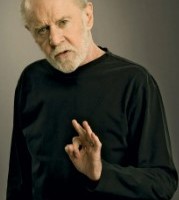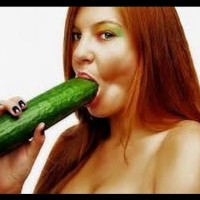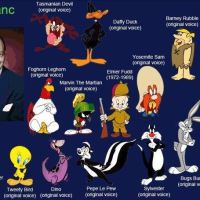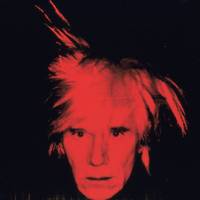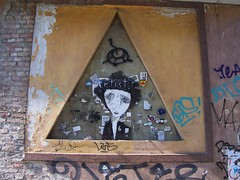THE BEDROOM SECRETS OF THE MASTER CHEFS a novel by Irvine Welsh (2006)
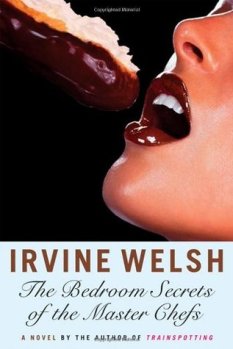 Irvine Welsh is destined to be forever introduced as ‘the author of Trainspotting’.
Irvine Welsh is destined to be forever introduced as ‘the author of Trainspotting’.
He has been fairly prolific since he burst on the literary scene so memorably in 1993 but none of his novels or short story collections have captured the public imagination like his audacious and inspired debut.
To date his career mirrors that of Orson Welles in that he started at the top and has been steadily working his way downhill ever since.
‘The Bedroom Secrets of the Master Chefs’ is his sixth full length novel and ,confusingly, neither of its main two characters are chefs. Danny Skinner and Brian Kibby are both twenty something employees of Edinburgh’s Environmental Health Department and thus responsible for ensuring that correct hygiene standards of the city’s restaurants are maintained.
The title is the same as a book within a book by an unsavoury celebrity chef named Alan De Fretais, a work that Skinner unreservedly judges “the biggest pile of bullshit imaginable”. His harsh judgement Is supported by the brief extracts we are presented with. One of these reads: “I have long held the belief that the only pleasure to rival making love is the eating of good food. The twin arenas of the true sensualist must, by extension, be the bedroom and the kitchen, and such a person must strive to be a master of both environments”.
You might expect from this that Welsh would play more on this food-sex equation but he is more preoccupied with booze (or in the Scottish vernacular ‘peeve’) and bonking.
Drawing together these twin themes, Skinner notes that “being off the peeve makes you much better at shagging” but this insight doesn’t convert him a life of sobriety. While Skinner pursues an insatiable quest for erotic enlightenment, bars always seem to get in the way.
With the exception of brief excursions to Ibiza and San Francisco the novel’s key events are set in the “cold”, “dark” city of Edinburgh where Skinner finds “perfect conditions for hours of self-destructive heavy drinking”.
He embarks on a mission to discover the true identity of his father as a way of understanding why he is such an alchie and why he so often fucks up in relationships. Through hints his mother throws, he is led to believe that this man may be one of the top chefs he encounters in his work, maybe even the scabrous Alan De Fretais himself. This red herring allows Welsh to just about keep within the remit suggested by the novel’s salacious title.

Irvine Welsh
Skinner’s life of excess would normally lead to serious health issues. His resilience is the (for him) happy consequence of a hex he has inadvertently placed on his “strange nemesis” Brian Kibby. The curious (and largely unexplained) curse upon Kibby means that while Skinner remains a picture of health, Kibby’s condition becomes life-threatening. Skinner is able to survive beatings and a brutal anal rape without a scratch and allows him to consume staggering quantities of alcohol and cocaine without any after effects. Welsh makes a clunky reference to literary inspirations behind this contrived plot device when he reports how Kibby’s father, Keith “had seemed to be particularly moved by books like Oscar Wilde’s The Picture Of Dorian Gray and Robert Louis Stevenson’s The Strange Case Of Dr Jeckyll and Mr Hyde”.
Any pity we might feel for Kibby is undermined by the fact that he such a wimp. He divides his leisure time between video games (Harvest Moon), masturbating and playing with his Dad’s model train set. He is a shy, ineffectual, teetotal virgin who elicits little sympathy since, in spite of his suffering, he bears “abundant humiliation in silence”.
The reader is complicit with Danny Skinner in taking unseemly pleasure in Brian’s suffering . Skinner is a self-centred bully who finds it “delectable” to see what he has escaped . While not wholly condoning his behaviour, Welsh seems intent on justifying the disproportionate hatred he feels towards his work colleague. The author gives his anti-hero such non-laddish character traits as self-criticism and a love of poetry but over-eggs this near the end by stating, that “Skinner seldom thought about a woman in purely sexual terms” even though the novel supplies plenty of evidence to the contrary.
This is a novel with pretensions of being a modern-day fable of masculinity in crisis. It might have made an interesting short story but stretched out to almost 400 pages it is undercut by crude and tiresome accounts of binge drinking, coke snorting and sexual exploits. Incongruous references to the war in Iraq and a ludicrously over the top finale only confirms that what we have on our plates here is more of a dog’s dinner than a gourmet feast.



